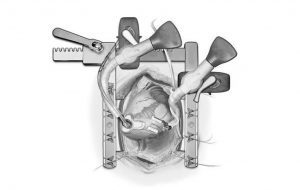
The recovery process after heart surgery is an important period both physically and emotionally for patients and their relatives. In this article, you can find the key points to consider in the first weeks and long-term health recommendations for individuals who have undergone cardiovascular surgery. With the right information and regular follow-up, it is possible to get through this process more comfortably and safely.
Initial Period After Surgery: 3-4 Weeks
The recovery process after heart surgery is generally evaluated in two main periods. The initial period covers 3 to 4 weeks after surgery, and general body recovery takes place during this process.
1. Wound Healing
- The surgical site should be kept clean and dry.
- It is okay to shower at home, but pressure should not be applied to the incision site.
- You should consult your doctor immediately in case of redness, increased heat, discharge, or incision opening.
- Fever may be a sign of infection.
2. Protection of the Breastbone (Sternum)
Most heart surgeries are performed by cutting the breastbone. The healing time for this bone is on average 2-3 weeks. During this process:
- Protect your chest against impacts.
- Use the corset regularly given to you.
- Support your chest with a pillow when coughing or sneezing.
- When getting out of bed, move by supporting your breastbone.
3. Pain Control
- Mild to moderate pain is normal.
- You should regularly use the pain medications recommended by your doctor.
4. Physical Activity
- Avoid heavy lifting in the first 4-6 weeks.
- Stay away from bending, sudden movements, and strenuous exercises.
- Start moving with daily short walks.
- It is generally recommended to wait 4 weeks before driving.
5. Nutrition and Sleep
- Loss of appetite is normal during the recovery period.
- Start with light foods that are easy to digest.
- For sleep problems, avoid caffeinated drinks and take short rests during the day.
Long-Term Health Recommendations
After the initial recovery period is completed, lifestyle changes are of great importance to protect your heart.
1. Quit Smoking
- Especially if you had surgery due to vascular occlusion, quitting smoking is vital.
- A smoke-free life protects your vascular health and reduces the possibility of repeat surgery.
2. Exercise Regularly
- Increasing physical activity is one of the most effective steps for heart health.
- Walking, light cycling, or simple exercises done at home are suitable.
- Always plan your exercise program under doctor supervision.
3. Take Your Medications Regularly
- Medications given after surgery may include blood thinners, cholesterol-lowering drugs, or rhythm regulators.
- You should use the medications without skipping and at the correct dose.
4. Don’t Skip Doctor Check-ups
- Post-surgery check-ups are important to monitor your current condition and detect possible complications in advance.
- Remember to go for regular check-ups at intervals specified by your doctor.
Heart Surgery Is a Beginning
Recovery after heart surgery is not limited to tissue healing alone. This process is also the beginning of a healthy lifestyle. By making permanent changes in your lifestyle, you can both protect your heart and reduce the risk of needing new surgeries in the future. Remember, heart health is maintained through knowledge, awareness, and disciplined follow-up.
